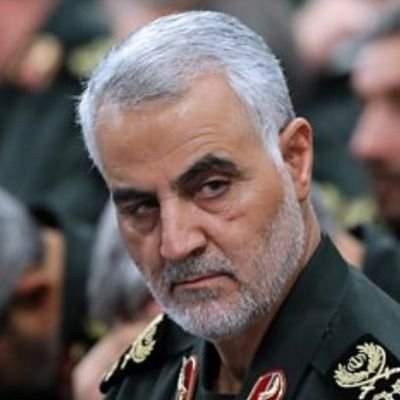New York: Americans woke up on Friday to warnings from decorated US military experts and West Asia pros that the US airstrike near Baghdad airport that killed Irans top military commander General Qasem Soleimani is the equivalent of “pouring gasoline on a smouldering fire” and an einflection point that tilts the world and Americans in particular into a far more dangerous place in the span of one night.
The killing of Soleimani, the head of Iran’s elite Quds Force and the architect of the country’s most significant interventions across West Asia, has spiralled US-Iran tensions to a new high.
“Unprecedented”, “inflection point”, “unbelievably horrific consequences”, “prepped and ready for attack” sum up the theme of reactions flowing thick and fast from West ASia specialists on Friday.
“This is an inflection point. You can drop a plumb line from that day we decided to invade Iraq to where we are today,” former NATO Supreme Allied Commander James Stavridis told an early morning news television.
The former NATO Commander said the US is “tactically” better off with Soleimani being “taken off the chessboard” but strategically there’s “no structure or strategy for where we’re going to take this thing next.”
“The Pentagon today is going to be on all hands on deck” and prepared for the response which is all but certain, Stavridis said.
In terms of impact, the retired four-star Navy Admiral compared Soleimani’s killing to the current Chairman of the Joint Chiefs of Staff General Mark Milley, the highest-ranking officer in the US military, being eliminated.
“So, we’ve got to up our defensive game in the Persian Gulf or our ships in Afghanistan for our troops there in Iraq, in Syria, in Europe. US troops in Europe will be targeted, our ally, Israel will be targeted,” he said.
Michael Weiss, author of a bestselling book on ISIS, is calling Soleimani’s end “the most seismic event in West Asia in the 21st century.”
Soleimani, Weiss told a news show, was the most “Machiavellian military commander” in several generations, who was single-handedly responsible for overseeing and orchestrating Iran’s proxy wars with at least half a dozen countries.
Sometime in 2007, Soleimani is said to have boasted to David Petraeus, his US counterpart in Iraq, “I hope you enjoy the brief respite that you’re getting here in Baghdad; I’ve been busy in Beirut.”
Conventional war, proxy war and cyber warfare are all included in the experts’ bucket list of immediate next steps as Iran prepares to retaliate.
On January 1, Iran’s supreme leader Ayatollah Seyed Ali Khamenei taunted Donald Trump on Twitter, effectively calling the US President a paper tiger and challenging him to bring it on.
Trump simply took the bait, said Weiss.
Ambassador Wendy Sherman, who led the US negotiating team that reached an agreement on a Joint Comprehensive Plan of Action between the P5+1, the European Union and Iran, said on TV the “one-off action” that killed Soleimani could have “unbelievably horrific consequences” for the US.
If Iran goes on the offensive, what will the US reaction look like? Stavridis said “that’ll be everything from aircraft carriers flowing to the region, Marine Expeditionary Unit, the US package is going to be prepped and ready.”
Iran’s supreme leader Khamenei has warned that “harsh retaliation is waiting” for the US. He called Soleimani the “international face of resistance.”
The US has said that Soleimani taught Iraqi militants how to manufacture and use deadly roadside bombs against US troops after the invasion of Iraq.
On Sunday, US airstrikes killed 25 Iranian-backed militia fighters in retaliation for the killing of a U.S. contractor at an American base in a rocket attack the previous week.
Published on: Jan 4, 2020 at 03:34 IST
IANS




